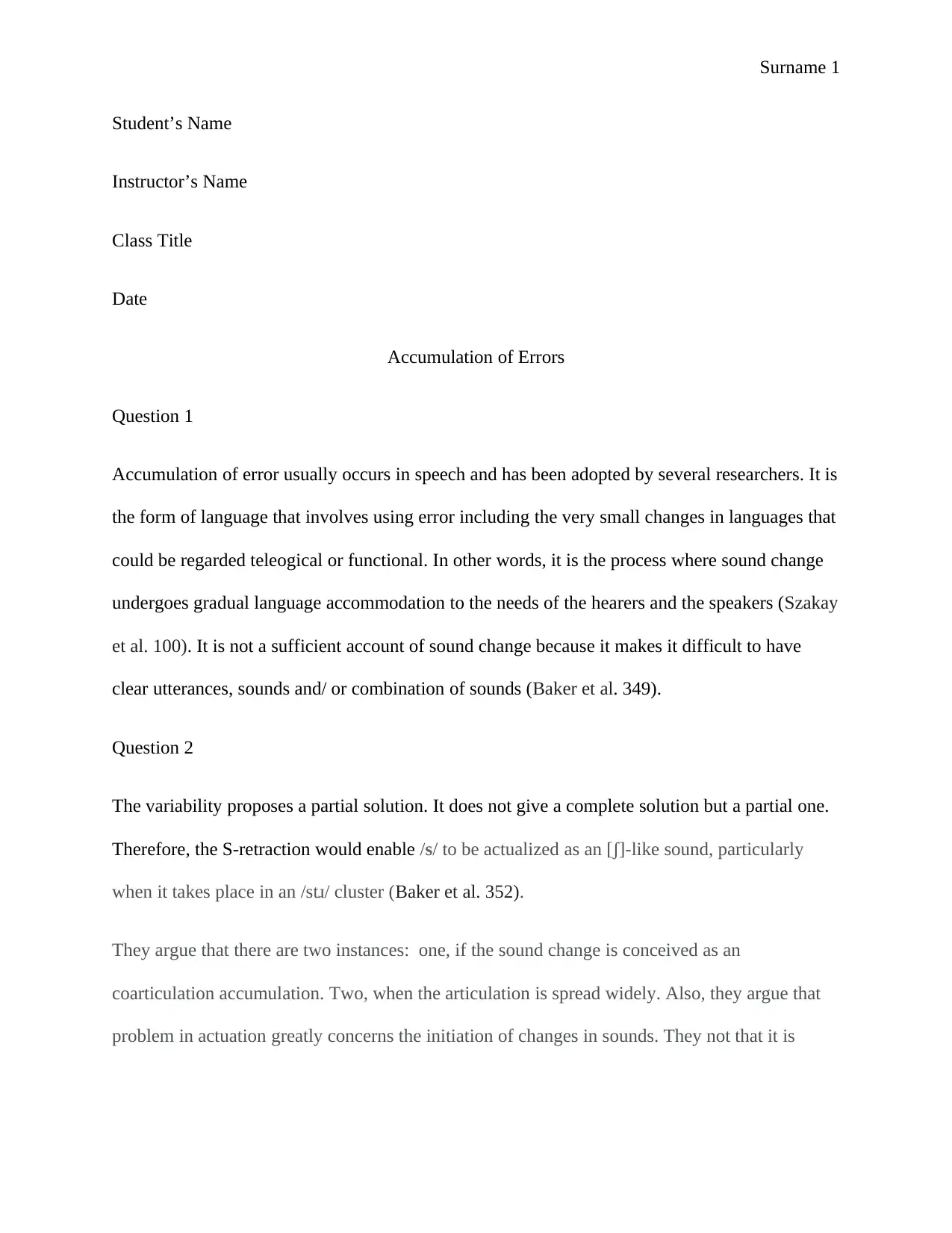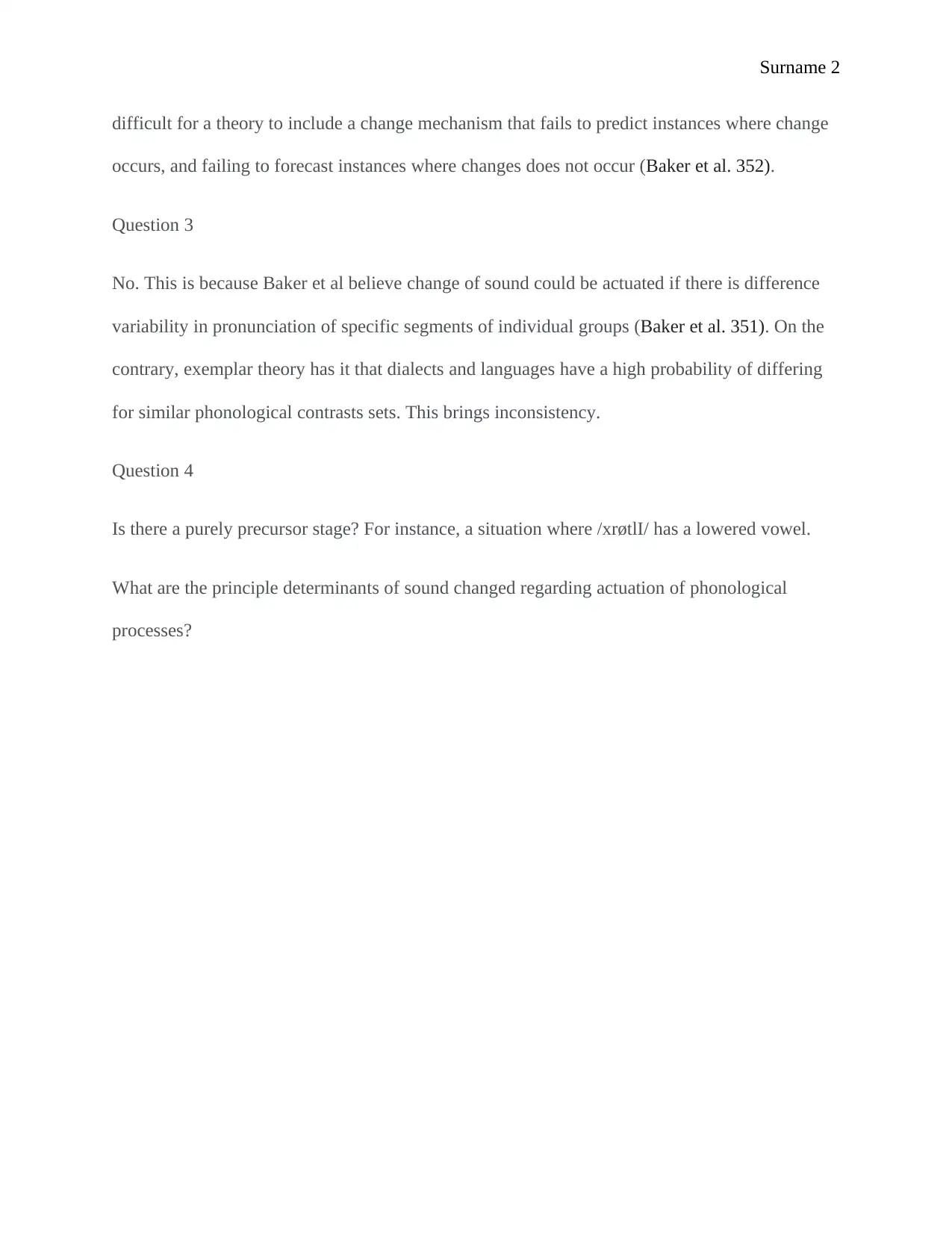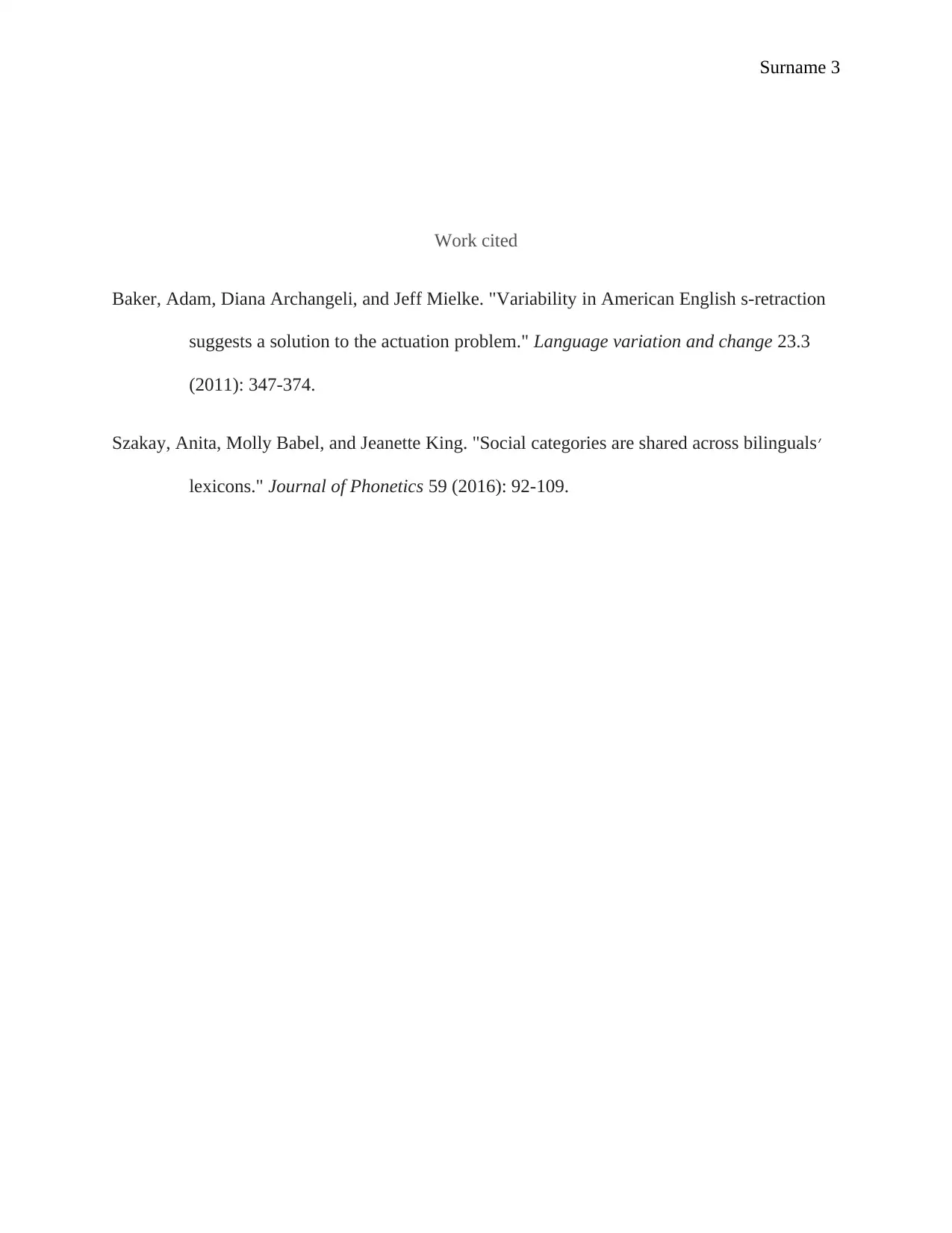Exploring Sound Change and Variability: Accumulation of Errors
VerifiedAdded on 2022/09/26
|3
|438
|22
Homework Assignment
AI Summary
This assignment explores the concept of sound change, focusing on the accumulation of errors and the actuation problem. It begins by defining accumulation of error and its role in language, referencing the gradual accommodation of language to speakers' and hearers' needs. The analysis then addresses the variability in pronunciation as a partial solution to the actuation problem, specifically discussing s-retraction in American English. The student's responses to the provided questions delve into the nuances of sound change, including the potential for coarticulation accumulation and the challenges in predicting when sound changes occur. The assignment also critiques the applicability of exemplar theory in light of the observed variability. Finally, it concludes with a question exploring precursor stages in sound change and determinants of phonological processes.
1 out of 3




![[object Object]](/_next/static/media/star-bottom.7253800d.svg)